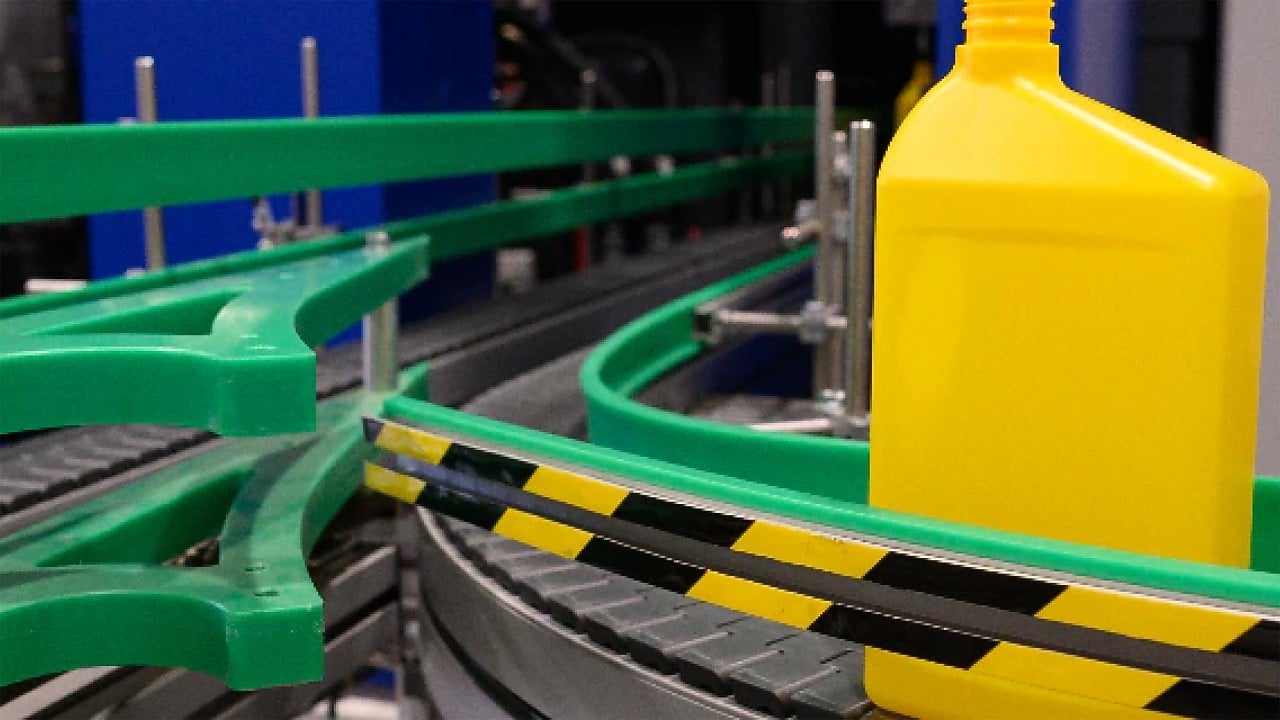
Blow molding
At Shell Polymers, we help plastic converters accelerate production, reduce downtime and bring new blow molded products to market with confidence. Our resins are engineered to help ensure consistency in wall thickness, aesthetics, and processability whether you're producing plastic bottles, soft drink containers, or industrial packaging applications. When working with us, you’ll Shell gain access to industrial-grade blow molding machines, designed to simulate real production conditions. This enables collaborative testing, faster resin qualification, and expert support—without interrupting your own manufacturing lines.
Expert insights on blow molding & market trends

Reduce blow molding defects with our processing conditions guide
Processing conditions are a key factor in the quality of a final, blow-molded product. Our team of blow molding experts have put together a guide to help reduce production errors, reduce defects and improve final product quality.

High-quality resin can increase blow molding machine production
Improving production is always a top priority for converters and resin plays an important role in this. Learn how suppliers can help ensure resin meets a converter’s quality needs.

Why the blow molded plastics market prefers HDPE
HDPE is incredibly versatile compared to other plastics and converters can use it to create an immensely diverse array of blow molding products across multiple applications.
Product summary
View HDPE product details
View HDPE product details
| Product | Melt index |
Density |
Product details |
|---|---|---|---|
| Shell Polymers HDPE 46BG6HLU | 6.0 HL | 0.946 | View technical properties |
| Shell Polymers HDPE 48BG9HL | 9.0 HL | 0.948 | View technical properties |
| Shell Polymers HDPE 55B035 | 0.35 | 0.955 | View technical properties |
| Shell Polymers HDPE 55B035A | 0.35 | 0.955 | View technical properties |
| Shell Polymers HDPE 63B072 | 0.72 | 0.963 | View technical properties |
View safety data sheets
View safety data sheets
| Document title | Document |
|---|---|
| Shell Polymers HDPE | View technical properties |
| Shell Polymers LLDPE | View technical properties |
| Shell Polymers Polyethylene Wide Spec or Offspec | View technical properties |
Product 101
Understanding how we name our grade slates is key to choosing the right melt index and plastic resin density you need. Explore our naming convention below to know exactly what to look for when reviewing product detail for your next injection molded part or production run.

Density is reflected by the first two numbers found in the product name, which is 18 in this instance. These numbers represent the last two significant digits of the density value. See examples below.
18 = 0.918 density
53 = 0.953 density
63 = 0.963 density
Our blow molding expertise

Michael Misco, Technical Service Engineer
Michael has 10+ years of experience in the blow molding manufacturing industry helping customers innovate in new product and application development.
"At Shell Polymers, we want our customers to be at the center of everything we do. To demonstrate this, our business has created a space unlike any other in the industry that will hold multiple pieces of new, commercial-scale machinery across five different markets and processes. We understand the challenges associated with shutting down a production line for a trial, so we want our customers to have the luxury of utilizing this space and equipment to avoid downtime."

Stay informed with Shell Polymers
Our monthly newsletter delivers valuable insights to plastic converters, including industry information, expert technical tips, and the latest blow molding news—helping you stay competitive in the evolving world of plastic manufacturing.
Blow molding in action across markets
Blow molding is essential across industries—from personal care and lawn and garden to outdoor living and soft drink packaging. Its versatility in producing hollow plastic parts, plastic bottles, and custom containers makes it a cornerstone of modern plastic manufacturing.
Automotive
Crates in this market benefit from the sheer tensile strength that only HDPE can provide.
Industrial
Manufacturing products such as crates, blown film and drums benefit from HDPE or LLDPE, depending on the use case.
Food packaging
Polymer packaging made with LLDPE or HDPE helps protect food from delivery and shipping to your kitchen.
Outdoor living
A popular choice for outdoor applications, HDPE resin is built to withstand harsh elements.
Healthcare
Depending on the product’s desired properties, HDPE and LLDPE are used to make industrial packaging and blown film.
Personal care
Cosmetics containers made from HDPE are more durable, making the trip down the assembly line to the consumer’s cabinet a smooth one.
Household
Durable and leak-resistant containers for household chemicals can be made with HDPE or LLDPE.
Toys
LLDPE and HDPE helps provides toys with flexibility and durability—keeping them safe from little hands that might break them.